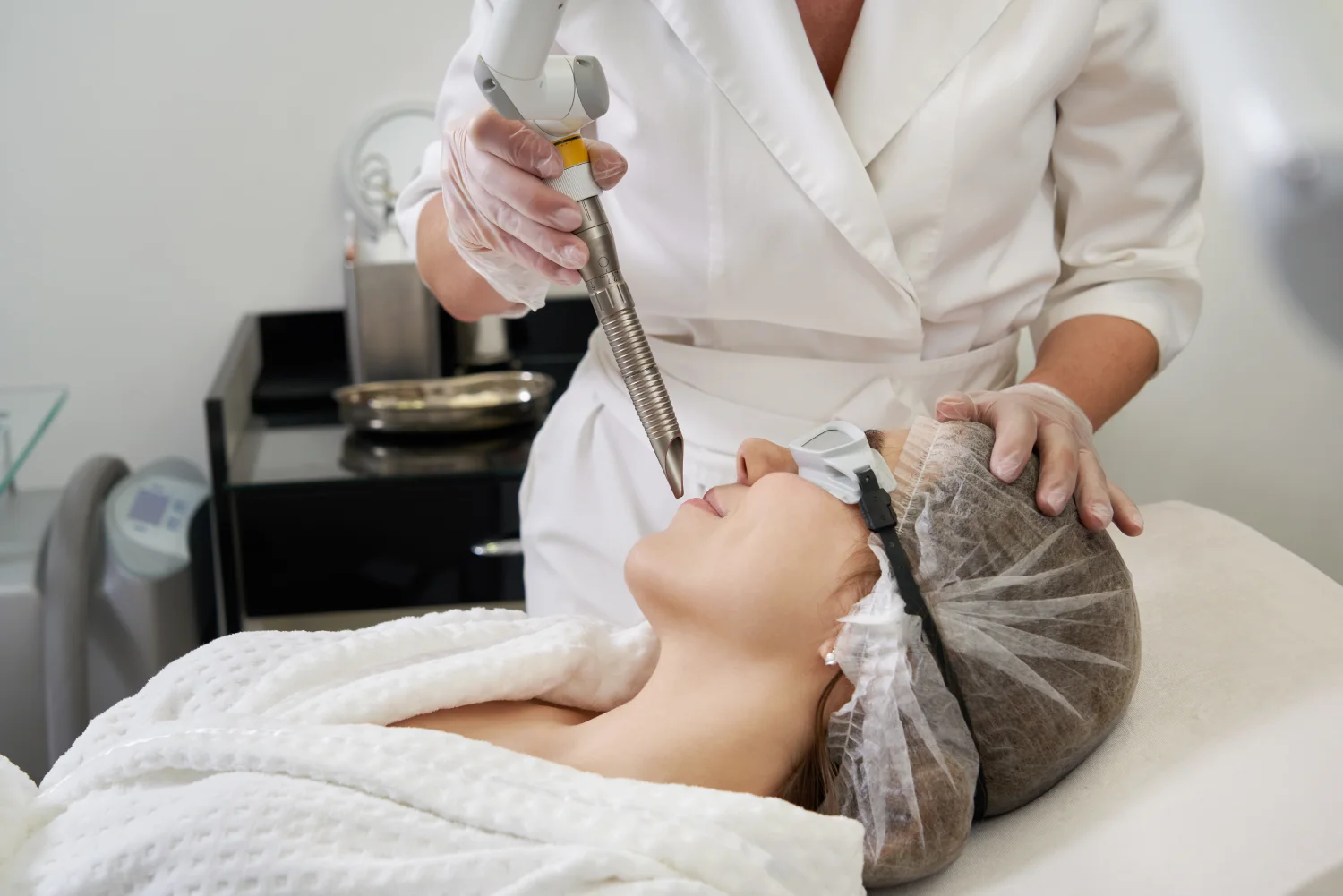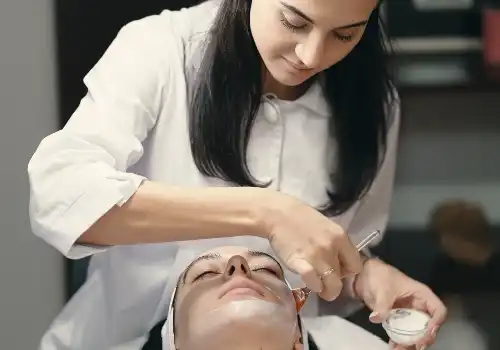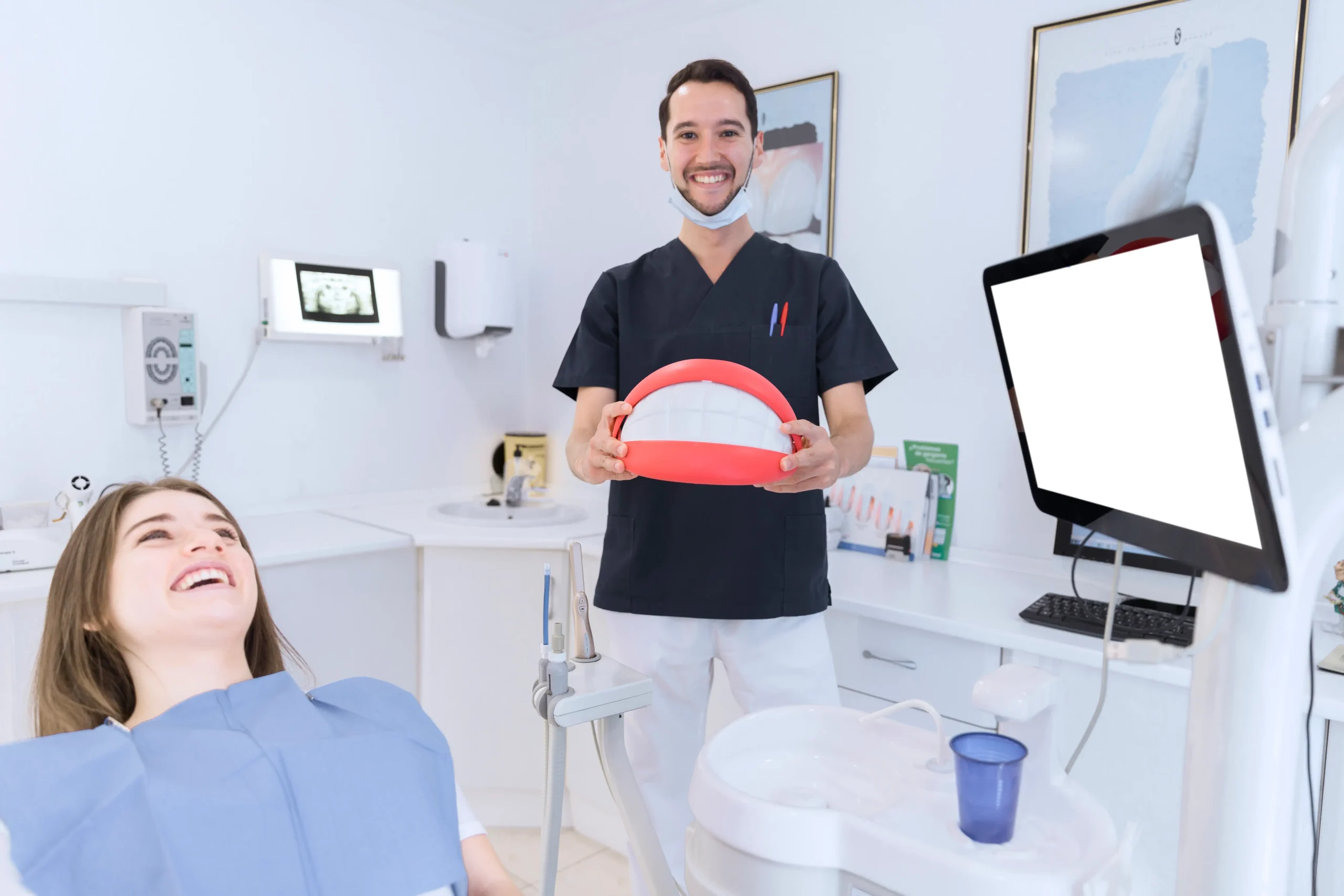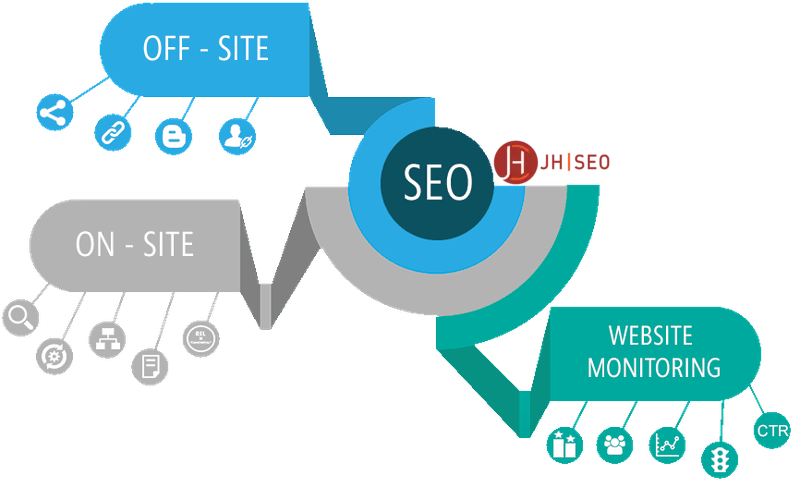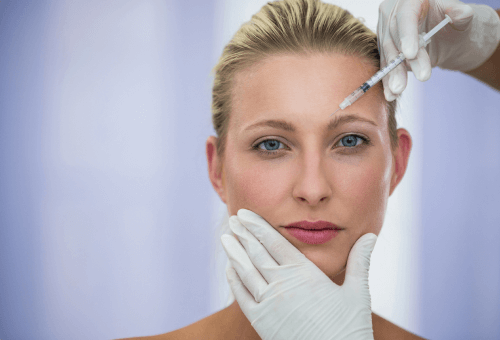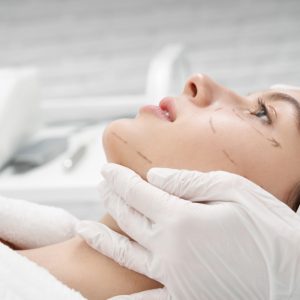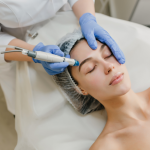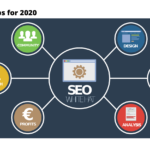In today’s competitive landscape, an online presence is essential for medical practices, especially med spas, dermatologists, and plastic surgeons. As potential patients turn to Google for treatment research and provider information, search engine optimization (SEO) becomes vital. Effective medical spa SEO strategies can boost visibility, helping practices reach more potential patients and drive inquiries. A well-optimized website not only attracts new patients but also establishes credibility by showcasing a commitment to reliable information and high-quality services.
Medical spa SEO involves optimizing websites, social media profiles, and online listings to improve search engine rankings. Appearing on the first page of a Google search is crucial, as most users don’t look beyond the top results. Medical spas can leverage SEO to highlight services, showcase testimonials, and create valuable content addressing common patient questions. This enhances visibility and builds trust, positioning the practice as an authority in the field. By investing in SEO, med spas can reach a wider audience, connect with potential patients, and grow their patient base.
Search Engine Optimization
Search engine optimization (SEO) boosts a website’s visibility on search engines like Google, increasing organic traffic and attracting new patients. For medical spas, dermatology, and plastic surgery professionals, SEO is crucial for standing out from competitors and reaching potential patients seeking specialized services. By optimizing their websites for relevant keywords like “med spa,” providers can ensure their services rank high in the search engine results, making it easier for patients to find and trust them.
Effective medical spa SEO improves Google rankings and attracts targeted traffic, increasing patient acquisition. Potential patients are more likely to contact providers on the first page of search results. SEO also helps medical spas engage their audience with informative content and an active social media presence. A comprehensive strategy includes:
- Keyword Optimization – Using specific terms like “medical spa services” or treatment names to target potential patients.
- High-Quality Content – Providing valuable, informative content about services that helps build trust.
- Social Media Engagement – Leveraging social media to promote services, share content, and engage with followers.
- Patient Reviews and Testimonials – Highlighting real feedback to enhance credibility and appeal to new patients.
These components work together to build credibility and trust, giving new patients more reasons to choose one practice over another.
However, SEO for medical practices comes with unique challenges. Medical spas must not only optimize their website traffic but also ensure compliance with medical advertising guidelines. Unlike other industries, healthcare providers must carefully consider legal and ethical boundaries in their SEO strategies, including:
- Avoiding Misleading Claims – Ensuring that descriptions of services and outcomes are accurate and realistic.
- Protecting Patient Privacy – Being mindful of privacy laws in content that involves patient stories or reviews.
- Staying Current with Medical Guidelines – Adhering to regulations from medical boards to avoid potential penalties.
Despite these challenges, SEO offers significant opportunities for medical spas to showcase their expertise, highlight their commitment to patient care, and ultimately build a reputation that resonates with potential patients.
Google Business Profile
A well-optimized Google Business Profile is crucial for medical spas, dermatologists, and plastic surgeons aiming to enhance their online presence and attract new patients. GBP listings rank high in local search results, especially for “near me” queries, making them vital for medical spa SEO. Optimizing their GBP allows practices to ensure potential patients can easily find their services, contact information, and client reviews. This not only boosts visibility for Google business profiles but also establishes credibility, reflecting professionalism and attention to detail.
To maximize the effectiveness of a Google Business Profile, medical spas should focus on several key elements:
- Selecting the Right Categories – Choose specific categories that accurately represent the services offered, such as “medical spa,” “skin care clinic,” or “cosmetic surgeon.” This helps Google match the practice with relevant searches and ensures potential patients find the right information.
- High-Quality Photos – Add professional images of the facility, treatment rooms, and staff to create a welcoming impression. High-quality photos can build trust with potential clients and offer a glimpse into the ambiance and quality of the practice.
- Accurate Contact Information – Ensure the profile includes the correct phone number, website link, and hours of operation. Keeping this information updated is essential, as patients may be deterred by incorrect details.
Reviews and reputation management are also critical for building trust in the healthcare industry. Positive feedback on a Google Business Profile can significantly influence potential patients’ decision-making, as they often rely on reviews to gauge the quality of services. Encourage clients to leave reviews by:
- Politely Requesting Feedback – After a successful treatment or service, ask satisfied clients to share their experience on Google. A simple follow-up email can serve as a reminder.
- Responding to Reviews – Acknowledge both positive and negative feedback to show that the practice values patient input and is committed to improvement.
- Showcasing Testimonials on Social Media – Share positive reviews on the practice’s social media channels, which can amplify visibility and encourage more patients to leave feedback.
With a well-optimized Google Business Profile, medical spas can improve their local SEO, attract new patients, and enhance their online reputation, all of which contribute to sustained growth and credibility.
Keyword Research
Keyword research is key to a successful medical spa SEO strategy, helping practices identify terms potential patients use to search for services. For med spas, dermatologists, and plastic surgeons, it’s vital to target both general and specific treatment-related keywords. Optimizing websites with the right keywords makes it easier for potential patients to find your practice on Google and other search engines.
To find relevant keywords, med spas, and related practices can use a variety of tools and techniques:
- SEO Tools – Platforms like Google Keyword Planner, Ahrefs, and SEMrush offer insights into search volume, competition, and related keywords, allowing practices to select the most effective terms.
- “People Also Ask” and Google Autocomplete – These features can reveal common questions and searches that patients might have, providing ideas for specialized content.
- Social Media Monitoring – Observing social media conversations can reveal trending topics and questions in the skincare and cosmetic treatment space.
- Local SEO Tools – Tools focused on local search are valuable for finding location-based keywords (e.g., “med spa in [city]” or “near me”), which are essential for capturing patients seeking nearby services.
In healthcare SEO, balancing popular and specific keywords is key to reaching both general and niche audiences. For example:
- Broad Keywords – Terms like “med spa near me” attract a wide range of users interested in general services.
- Long-Tail Keywords – More specific phrases such as “non-surgical skin tightening at a medical spa” or “dermatologist acne treatment for sensitive skin” are aimed at users searching for particular services, which can drive highly targeted traffic.
Incorporating a mix of high-traffic and niche terms ensures that the website reaches a broad audience while also appealing to potential patients with specific needs. By identifying and using the right keywords, medical spas can create valuable, informative content that speaks directly to patients’ needs, enhancing both visibility on location pages and credibility in search results.
Medical Spa SEO
Medical Spa SEO is a specialized form of search engine optimization for medical spas, dermatology clinics, and aesthetic practices. Unlike general SEO, it specifically targets potential patients seeking cosmetic and skincare services, such as skin rejuvenation and non-surgical body contouring. Given the competitive and regulated nature of the industry, a tailored approach is essential to ensure content compliance and effectiveness while highlighting the med spa’s unique offerings.
A core component of medical spa SEO is targeted content. Informative blog posts, videos, and guides on popular treatments like HydraFacial and microneedling attract users seeking information. This content boosts the med spa’s visibility on Google and establishes authority. Posts addressing common patient questions can draw in new patients and improve keyword rankings while sharing this content on social media extends its reach and builds trust.
Local SEO is vital for medical spas, as patients often seek treatments near their homes or workplaces. To optimize for location-based searches, medical spas should use keywords that include their city or neighborhood, such as “med spa in [city]” or “cosmetic treatments near me.” Key steps to enhance local SEO include:
- Google Business Profile Optimization – Ensure the profile is complete, accurate, and up-to-date with the correct address, phone number, website, and service areas.
- Localized Content – Create pages or blog posts focused on services offered in the local area, discussing how treatments can benefit the local community or address specific regional concerns.
- Local Backlinks – Build links from reputable local websites, such as community blogs, health directories, or local news outlets, which can boost the website’s authority and visibility in local searches.
In a saturated market, a well-executed medical spa SEO strategy can make all the difference in attracting and retaining new patients. By focusing on targeted, localized content and refining the website to reflect the latest SEO best practices, medical spas can significantly enhance their online presence and reach potential patients more effectively.
Content Marketing For SEO Success
High-quality, informative content is essential for improving medical spa SEO, helping med spas rank higher on search engines, and building trust with potential patients. Valuable content resonates with readers and signals to Google that the medical spa’s website is authoritative. Regularly publishing helpful content attracts new patients, encourages repeat visits, and fosters social media shares and backlinks. In the competitive aesthetics industry, strong content marketing can significantly enhance a medical spa’s online presence.
Content for medical spas should focus on education, patient concerns, and industry trends. Blog posts addressing common questions—like “What to Expect from a HydraFacial” or “How Radiofrequency Treatments Work”—can draw search traffic from potential patients. FAQs, testimonials, and before-and-after galleries enhance engagement and clarify treatment expectations. Sharing updates on advancements in skin care shows the med spa’s commitment to staying current, making it a trusted resource for potential patients. Amplifying this content on social media extends its reach and connects the med spa with a larger audience.
While promotional content is important for generating interest in services, it’s equally vital to balance it with valuable, educational information to build trust and authority. Instead of focusing solely on sales, content should offer genuine insights into skincare, patient care, and treatment options. A balanced approach to marketing channels may include:
- Educational Articles – Explain the science behind treatments or offer skincare tips relevant to potential patients.
- Testimonials and Case Studies – Share real stories that highlight the positive impact of treatments without overtly promoting services.
- Expert Advice – Offer tips on post-treatment care or advice on choosing the right skincare routines, which helps establish the med spa as a knowledgeable authority.
Technical SEO For Medical Websites
Key technical SEO aspects are essential for ensuring that healthcare websites, including those for medical spas, are optimized for both search engines and user experience. A website’s technical performance can significantly impact its ranking on Google and its ability to attract potential patients. The primary focus should be on improving page load speed, as slow-loading pages can deter visitors and negatively affect search rankings. Google values fast websites, so optimizing for speed is a critical component of medical spa SEO.
Page Load Speed:
- Slow-loading pages can lower rankings and drive away visitors.
- Optimizing images and using caching tools can improve load times.
Mobile Optimization:
- More users access websites on mobile devices, making responsive design essential.
- A mobile-friendly site improves user experience and boosts SEO performance.
Website Security (HTTPS):
- HTTPS ensures the website is secure, which is important for both users and search engines.
- Google prioritizes secure websites in search rankings.
A well-structured website is also vital for both SEO and user navigation. Clear, easy-to-follow site architecture allows search engines like Google to crawl and index your site efficiently, making it easier for potential patients to find your services online. Proper use of headings, subheadings, and internal linking within the site enhances both SEO and user experience. Lastly, consider adding schema markup to your website. This structured data helps search engines better understand your content, especially for medical practices, by providing details like location, services, and operating hours.
Clear Site Structure:
- Helps search engines index content efficiently and improves user navigation.
- Well-organized URLs and logical categories aid both users and search engines.
Internal Linking:
- Directs users to relevant content and helps search engines crawl deeper into the site.
- Improves site usability and SEO performance.
Schema Markup:
- Structured data that helps search engines understand and display key information like services and location.
- Enhances visibility in rich snippets and search results.
By focusing on these technical SEO elements, medical spas can improve their website’s search engine ranking, attract more new patients, and build a stronger online presence.
Tracking And Analytics
Tracking and analyzing SEO performance is crucial for understanding how well your medical spa’s website is performing and where improvements are needed. By monitoring key metrics, medical spas can adjust their SEO strategies to optimize for better search engine rankings and attract more potential patients. Google Analytics and Google Search Console are essential tools for tracking website traffic, user behavior, and keyword performance, giving Med Spas valuable insights into what is working and what isn’t.
Google Analytics:
- Helps track traffic sources, user behavior, and page performance.
- Provides insights into how visitors interact with your website, such as time spent on pages and bounce rates.
- Allows med spas to see which content and services are most popular with potential patients.
Google Search Console:
- Offers data on search queries that drive traffic to your website.
- Helps identify crawl issues that could be preventing search engines from indexing your pages.
- Provides information on backlinks, click-through rates, and overall site performance in search results.
By analyzing these metrics, medical spas can refine their SEO efforts to ensure they’re targeting the right keywords and optimizing content for better engagement. Key metrics to track include:
Organic Traffic:
- Measures the number of visitors arriving at your website through search engines like Google.
- Helps assess how well your SEO strategy is driving traffic to your medical spa.
Keyword Rankings:
- Tracks how well your website ranks for target keywords related to your services.
- Monitoring rankings allows you to adjust content and keyword strategy to improve visibility.
Click-Through Rate (CTR):
- The percentage of people who click on your website after seeing it in search results.
- A higher CTR indicates that your meta titles and descriptions are compelling and relevant to potential patients.
Conversion Rate:
- Tracks how many visitors complete desired actions on your site, such as booking an appointment or contacting your medical spa.
- Helps determine the effectiveness of calls to action and the user experience on your website.
In addition to website metrics, it’s also important to track performance on social media. By analyzing engagement on platforms like Instagram and Facebook, medical spas can gauge how well their social media efforts are connecting with potential patients. Social media metrics such as likes, comments, shares, and overall reach provide valuable feedback on content effectiveness and audience interest. This data can inform both your SEO and social media strategy, helping you attract new patients and maintain a strong, engaged online presence.
Social Media Metrics:
- Measures engagement levels on platforms like Facebook, Instagram, and Twitter.
- Helps med spas understand which types of content resonate most with their audience, driving better engagement and potential patient acquisition.
Local SEO For Medical Practices
Local SEO is crucial for medical spas, dermatologists, and plastic surgeons to attract nearby patients. Optimizing for local search ensures your practice stands out in relevant searches and makes it easy for potential patients to find your location, contact details, and services.
To optimize your medical spa’s website for local SEO, start by focusing on the following best practices:
Google Business Profile (GBP):
- Claim and optimize your Google Business Profile, ensuring that your medical spa appears in local search results and on Google Maps.
- Keep your business name, address, phone number (NAP), and business hours up to date, as consistency across all online platforms improves local search visibility.
- Encourage satisfied patients to leave positive reviews, as high ratings and reviews increase your medical spa’s credibility and can improve your ranking in local search results.
Local Keywords:
- Incorporate local keywords into your website content, such as “med spa in [city]” or “best dermatology clinic near [neighborhood].”
- Use tools like Google Keyword Planner to research local search terms that potential patients may use when looking for your services. Optimizing your website content with location-based keywords helps improve search rankings for location-specific queries.
Location Pages or Service Areas:
- If your medical spa serves multiple locations, create individual location pages or service area pages. These pages should include specific information about each location, including addresses, treatments available, and local landmarks to help patients easily find your services.
- Tailor content on these pages to the specific needs of patients in those areas, showcasing the services you offer and addressing common local concerns.
Mobile Optimization:
- Ensure that your website is mobile-friendly, as more patients are searching for services on their smartphones. A responsive design that loads quickly and is easy to navigate is crucial for local SEO success.
- Google prioritizes mobile-optimized websites in search rankings, particularly for local searches, so improving mobile usability can lead to better visibility and higher engagement from potential patients.
Local Backlinks:
- Earn backlinks from local websites, such as local news outlets, community blogs, or local health directories. These backlinks signal to Google that your medical spa is a trusted, authoritative local resource.
- Engage with local organizations and events, and sponsor or participate in community activities, which can provide opportunities for high-quality local backlinks.
Social Media and Local Engagement:
- Social media also plays an important role in local SEO. Actively engage with potential patients in your community on platforms like Facebook, Instagram, and Twitter.
- Share local content, events, and promotions that resonate with your audience. Geotagging your posts and using location-specific hashtags can also improve visibility within local search results.
Reputation Management And Reviews
Online reviews are crucial for the reputation of medical spas, dermatologists, and plastic surgeons. Potential patients often check Google, Yelp, or social media for feedback before choosing a provider. Positive reviews boost SEO, increase visibility in search results, and build trust, which is key to attracting and retaining new patients.
To effectively manage your medical spa’s reputation, consider the following strategies:
- Encourage Positive Reviews:
Encourage satisfied patients to leave positive reviews after each treatment. Ask them to share feedback on Google, Facebook, or other platforms. Positive reviews build trust and attract new patients. Additionally, ask patients to share their experiences on social media to further amplify your reputation. - Respond to Reviews Promptly:
Respond promptly to both positive and negative reviews. Thank patients for positive feedback, and address concerns in negative reviews professionally, offering resolutions. This demonstrates your commitment to patient satisfaction and enhances your medical spa’s reputation in search results. - Monitor Your Reputation Regularly:
Monitor reviews regularly using tools like Google Alerts or reputation management software to stay informed. This helps address issues early and maintain a positive online presence. - Leverage Reviews for SEO:
Reviews are crucial for SEO, as Google considers them in local search rankings. More positive reviews can boost your medical spa’s visibility, helping potential patients find you. Using relevant keywords in review responses also enhances SEO. - Social Media and Reputation Building:
Social media is vital for reputation management. Engaging with patients on platforms like Facebook and Instagram helps maintain a positive presence and build trust. Sharing testimonials and results showcases your services, drives website traffic, and boosts SEO. - Address Negative Feedback Professionally:
Negative reviews are inevitable, but addressing them constructively can protect your reputation. Respond professionally, offer solutions, and invite private discussions. A respectful reply can turn a negative experience into a positive one, showing potential patients your commitment to care and improvement.
Effective SEO is a long-term investment that can enhance the online presence and reputation of medical spas, dermatologists, and plastic surgeons. By focusing on targeted content marketing, keyword research, optimizing a Google Business Profile, and local SEO, med spas can attract potential patients and build credibility. High-quality content that answers patient questions and an active social media presence can further improve visibility and drive traffic.
































